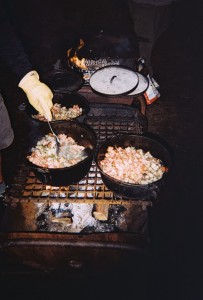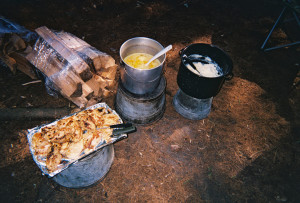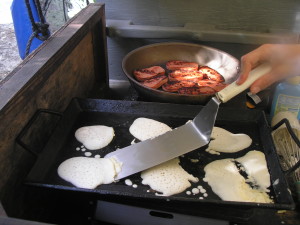 A federal district court in March, 2015 held that neither BSA nor NCAC (National Capital Area Counci) were liable for an injury to a Scout as a result of a 2008 E-coli tainted hamburger episode at NCAC’s Goshen Scout Reservation. I will spare all the details of the misery allegedly suffered by the Scout, but he reportedly suffered brain and neurological injury as a result of eating insufficiently cooked hamburger in his foil dinner (the source of the tainted meal still being a question apparently). The basis of the ruling was that both BSA and NCAC are immune under the Virginia Doctrine of Charitable Immunity for acts constituting ordinary negligence (but not for acts which constitute gross negligence).
A federal district court in March, 2015 held that neither BSA nor NCAC (National Capital Area Counci) were liable for an injury to a Scout as a result of a 2008 E-coli tainted hamburger episode at NCAC’s Goshen Scout Reservation. I will spare all the details of the misery allegedly suffered by the Scout, but he reportedly suffered brain and neurological injury as a result of eating insufficiently cooked hamburger in his foil dinner (the source of the tainted meal still being a question apparently). The basis of the ruling was that both BSA and NCAC are immune under the Virginia Doctrine of Charitable Immunity for acts constituting ordinary negligence (but not for acts which constitute gross negligence).
The Scout plaintiff failed to meet his burden of showing that the step of providing tainted meat for cooking by Scouts constituted gross negligence, with the court holding that the providing by NCAC of foil dinner safe cooking instructions to the units and Scouts negated any finding of gross negligence, which would have provided possible basis for liability. There apparently was no finding that the unit leaders were negligent themselves in any way with regard to the manner by which the Scout was instructed or supervised to prepare his foil dinner.
 However, is the standard of care restricted merely to how a Scout is instructed to prepare a meal? Would not the standard of care also require that some effort be made to ensure that the proper procedures are in fact followed in the event that some risk exists regarding consuming food that is not completely cooked? “Food for thought” during the program year where patrol cooking (Boy Scouts) or family camping (Cub Scouts) may be prevalent. As they sometimes say, “the proof is in the pudding” regarding whether safe cooking procedures have actually been followed by those actually doing the cooking.
However, is the standard of care restricted merely to how a Scout is instructed to prepare a meal? Would not the standard of care also require that some effort be made to ensure that the proper procedures are in fact followed in the event that some risk exists regarding consuming food that is not completely cooked? “Food for thought” during the program year where patrol cooking (Boy Scouts) or family camping (Cub Scouts) may be prevalent. As they sometimes say, “the proof is in the pudding” regarding whether safe cooking procedures have actually been followed by those actually doing the cooking.
 Qualified supervision and the duty of care require that adult leaders ensure that safe food practices including safe food storage, food preparation, and cooking procedures are all “ingredients of the recipe” (trust, but verify!).
Qualified supervision and the duty of care require that adult leaders ensure that safe food practices including safe food storage, food preparation, and cooking procedures are all “ingredients of the recipe” (trust, but verify!).
It is no consolation for a leader to tell a Scout that he would not be sick if he had done a better job cooking his food, particularly if a potential food illness has long-term effects. (This is analogous to telling a Scout that he would not be suffering from dehydration if he had merely consumed more water as he had been instructed, but had not been monitored to see if he had actually been drinking sufficient water).
Safe eating to all.
